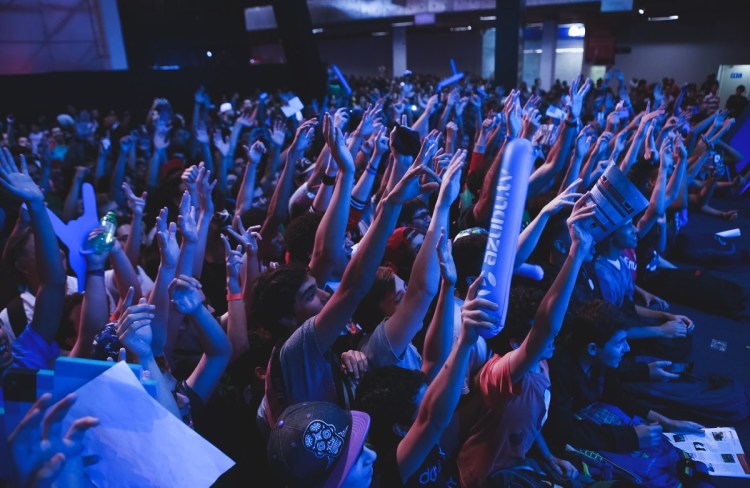Amazon’s been busy building out an epic esports ecosystem, or empire, that is simply unprecedented. Just in case you haven’t appreciated the reality of the situation, let’s take a look at the timeline.
- August 2012: Amazon announces the launch of Amazon Game Studios along with the debut of its first social game, Living Classics.
- February 2014: Amazon acquires Double Helix, a game studio that last year seemed to silently join the fold and merge into the Amazon Game Studios brand.
- August 2014: Amazon acquires leading esports broadcaster, Twitch, for a tune of close to $1 billion cash.
- February 2016: Amazon launches free cloud-based 3D game engine, coined Lumberyard, which enjoys deep integration with sister company, Twitch.
- August 2016: Twitch acquires Skype-like platform Curse, which creates programs like voice clients, databases, and mod managers for PC games.
- September 2016: Amazon Game Studios announces three upcoming esports-crafted games: Breakaway, Crucible, and New World. Breakaway, which is currently in Alpha, is integrated to Twitch with eSports features like Steam+, a virtual currency that is particularly well oriented to fanning fan engagement.
- February: Last month, Amazon announced hiring former chief of Sony’s online business, John Smedley, to run a new game studio in San Diego.
Now combine these elements together with the fact that Amazon’s ecosystem has Amazon Web Services at its disposal which, along with its digital and physical publishing infrastructure, creates the sort of one-two combination that I doubt anyone can offer a historical comparison to.
Here’s the thing: The most unusual part of all of this is that Amazon Game Studios is launching a lineup oriented and optimized for esports in a diametrically opposite fashion to what is normally an organic phenomenon.
That’s the elephant in the room.
June 5th: The AI Audit in NYC
Join us next week in NYC to engage with top executive leaders, delving into strategies for auditing AI models to ensure fairness, optimal performance, and ethical compliance across diverse organizations. Secure your attendance for this exclusive invite-only event.
If you look at any of the major hits in competitive gaming, be it League of Legends, Counterstrike: Global Offensive, or Dota 2, each example illustrates an organic road that each game meandered through, powered by the volunteered insistence of the player community. Any exceptions are only after a studio has already earned tremendous momentum from a loyal fan following, like in the case of Blizzard’s Overwatch.
The gaming industry is notoriously cutthroat, gamers are fickle, and venture capital thrown into play on a gaming venture is usually better served placed on a bet in roulette. It’s never anything but high stakes and here we have Amazon betting big on gaming titles that are grown with esports DNA right off the bat.
Amazon’s proposition is anything but organic, and yet it’s the smartest and most interesting thing to look at. It’s hedging their bets with not one title play but a series that just last month now includes Smedley into the mix with a brand-new studio.
“Amazon is getting into games in a big way, and I really like their dedication to doing big things.” Smeadley told VentureBeat in an email.
Amazon is going all-in with this play but not without a whole armada as an escort to the promised land. It’s hard to know how it will play out because every next move could be another announcement of an acquisition or a launch of another title or platform that might tilt the scales.
The combination reflects a curated landscape that promises synergy and a digital version of the circular economy model that potentially leverages waste as complementary fuel.
I’ve written recently on how esports is a success, due either partly or in large part, because it lays at the center of multiple industry intersections. While that convergence also happened organically throughout a period that started no less than a quarter of a century ago when competitive gaming first began making its appearance in the world, the case for Amazon is in how clever the complementary pieces have been put together.
The full picture reflects a highly-intertwined maneuver that, orchestrated by an organization led by Jezz Bezos, a figure who has an appreciation for making the types of decisions that leave the door open for backtracking. This isn’t an example of that, at all. This is committing to a vision of a future where eSports has a far-reaching influence on society.
To this point, one of Amazon Game Studios’ recent job postings reads: “Amazon is all in on games. We believe the evolution that began with arcade communities, growing to the live streams and esports of today, will continue to a future where games are a global cultural touchstone that cuts across age, gender and nationality.”
So to recap, we have Amazon Game Studios and its line-up of livestreaming-friendly titles in cahoots with a motley crew that includes Twitch, Lumberyard, Curse, Amazon Web Services, and its digital and physical publishing infrastructure.
If it were any other company and if the positioning wasn’t so bold, I would be more critical. But this whole bizarre bonanza has been structured in such an interesting way that I think it’s pretty much the games industry’s duty to root Amazon on with a collective cheer.
Amir-Esmaeil Bozorgzadeh is the co-founder at Virtuleap, a sandbox for creative developers to showcase their VR concepts to the world, which is currently running the world’s biggest WebVR Hackathon.


